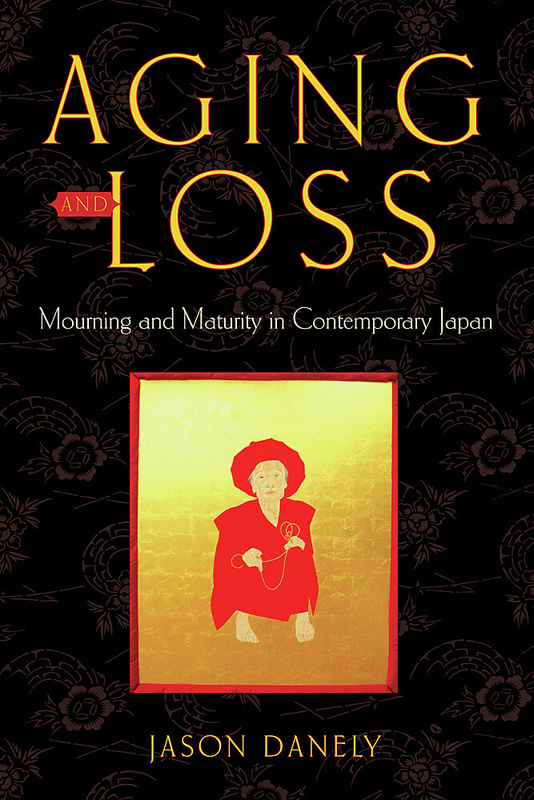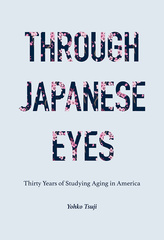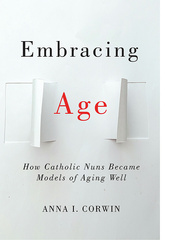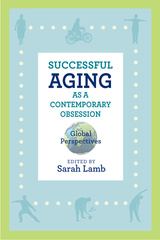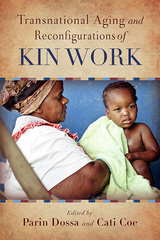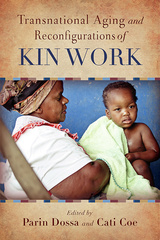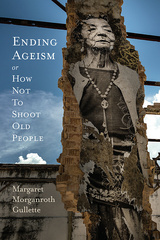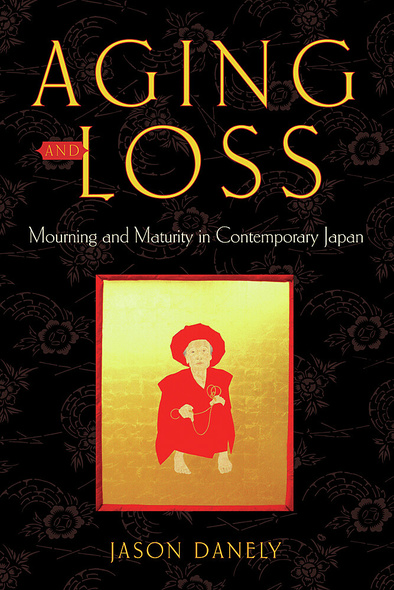
229 pages, 6 x 9
1 map, 8 illustrations
Paperback
Release Date:02 Jan 2015
ISBN:9780813565163
Aging and Loss
Mourning and Maturity in Contemporary Japan
By Jason Danely
SERIES:
Global Perspectives on Aging
Rutgers University Press
By 2030, over 30% of the Japanese population will be 65 or older, foreshadowing the demographic changes occurring elsewhere in Asia and around the world. What can we learn from a study of the aging population of Japan and how can these findings inform a path forward for the elderly, their families, and for policy makers?
Based on nearly a decade of research, Aging and Loss examines how the landscape of aging is felt, understood, and embodied by older adults themselves. In detailed portraits, anthropologist Jason Danely delves into the everyday lives of older Japanese adults as they construct narratives through acts of reminiscence, social engagement and ritual practice, and reveals the pervasive cultural aesthetic of loss and of being a burden.
Based on nearly a decade of research, Aging and Loss examines how the landscape of aging is felt, understood, and embodied by older adults themselves. In detailed portraits, anthropologist Jason Danely delves into the everyday lives of older Japanese adults as they construct narratives through acts of reminiscence, social engagement and ritual practice, and reveals the pervasive cultural aesthetic of loss and of being a burden.
Through first-hand accounts of rituals in homes, cemeteries, and religious centers, Danely argues that what he calls the self-in-suspense can lead to the emergence of creative participation in an economy of care. In everyday rituals for the spirits, older adults exercise agency and reinterpret concerns of social abandonment within a meaningful cultural narrative and, by reimagining themselves and their place in the family through these rituals, older adults in Japan challenge popular attitudes about eldercare. Danely’s discussion of health and long-term care policy, and community welfare organizations, reveal a complex picture of Japan’s aging society.
Devoid of academic jargon, Aging and Loss addresses several key theoretical questions in anthropology today. Its elegant prose makes it accessible to wider audiences, attesting to the power of ethnographic storytelling as a form of knowledge-making.
A gracious, observant, and sensitive ethnography.
Danely tackles the complex topic of aging and loss with a great sense of tact and sensitivity. He addresses the topic by employing a skillful analysis of folk stories, films, and delicately conducted interviews … Far from being dry ethnography, this book is written in a poetic and emotive voice. Yet the pictures of aging in Japan are far from overly optimistic.
Aging and Loss is a beautifully written piece of work that could be enjoyed from multiple perspectives beyond the lenses of anthropology or Asian studies. The fact that the stories took place in Kyoto - an ancient capital and the heart of Japanese traditional arts and culture - will further instill interest among those curious about the rich culture, nature, and changes challenging the city.
Jason Danely’s book represents an excellent contribution to our understanding of aging in Japan and provides an important exploration of the intersection of religion and aging.
Aging and Loss is a mournful book that treats loss as both a space of emptiness and a temporality of creativity. Achingly beautiful about aging and death in a country where both are rising today.
Danely’s (2014) well-written work is important in understanding the lived experiences of older adults as they age, and the impact various parts of their lives have on the construction of their narratives. Studies like this one should be conducted among different cultures and in different places to best understand older adults and how to support them through relationships and policy. Although Danely’s (2014) ethnographic research in Japan is not entirely generalizable because of the vast differences among cultures, many of the points made in the book are important to understand for any aging society to be prepared and learn from experiences in Japan. As other countries follow in Japan’s footsteps of having an aging society, there should be a focus on providing more resources for successful aging in order to then spend less on welfare (Danely, 2014). This book raises an important question: What do the trends surrounding older adults and aging say about a society?
Devoid of academic jargon, Aging and Loss addresses several key theoretical questions in anthropology today. Its elegant prose makes it accessible to wider audiences, attesting to the power of ethnographic storytelling as a form of knowledge-making.
A gracious, observant, and sensitive ethnography.
Danely tackles the complex topic of aging and loss with a great sense of tact and sensitivity. He addresses the topic by employing a skillful analysis of folk stories, films, and delicately conducted interviews … Far from being dry ethnography, this book is written in a poetic and emotive voice. Yet the pictures of aging in Japan are far from overly optimistic.
Aging and Loss is a beautifully written piece of work that could be enjoyed from multiple perspectives beyond the lenses of anthropology or Asian studies. The fact that the stories took place in Kyoto - an ancient capital and the heart of Japanese traditional arts and culture - will further instill interest among those curious about the rich culture, nature, and changes challenging the city.
Jason Danely’s book represents an excellent contribution to our understanding of aging in Japan and provides an important exploration of the intersection of religion and aging.
Aging and Loss is a mournful book that treats loss as both a space of emptiness and a temporality of creativity. Achingly beautiful about aging and death in a country where both are rising today.
Danely’s (2014) well-written work is important in understanding the lived experiences of older adults as they age, and the impact various parts of their lives have on the construction of their narratives. Studies like this one should be conducted among different cultures and in different places to best understand older adults and how to support them through relationships and policy. Although Danely’s (2014) ethnographic research in Japan is not entirely generalizable because of the vast differences among cultures, many of the points made in the book are important to understand for any aging society to be prepared and learn from experiences in Japan. As other countries follow in Japan’s footsteps of having an aging society, there should be a focus on providing more resources for successful aging in order to then spend less on welfare (Danely, 2014). This book raises an important question: What do the trends surrounding older adults and aging say about a society?
JASON DANELY earned a bachelor's in comparative religion from Western Michigan University and a PhD in anthropology from the University of California, San Diego. He is recipient of an IIE Fulbright Research Grant, the Melford E. Spiro Dissertation Award, the University of Wisconsin-Milwaukee Center on Age and Community Postdoctoral Research Fellowship, and the Japan Society for the Promotion of Science Postdoctoral Research Fellowship. He is co-editor, with Caitrin Lynch, of Transitions and Transformations: Cultural Perspectives on Aging and the Life Course (2013, Berghahn Books) and editor-in-chief of Anthropology and Aging. He is currently a senior lecturer of anthropology at Oxford Brookes University.
Acknowledgments
Introduction
Part I: Loss
1 Loss, Abandonment, and Aesthetics
2 The Weight of Loss: Experiencing Aging and Grief
Part II: Mourning
3 Landscapes of Mourning: Constructing Nature and Kinship
4 Temporalities of Loss: Transience and Yielding
5 Passing it on: Circulating Aging Narratives
Part III: Abandonment and Care
6 Aesthetics of Failed Subjectivity
Part IV: Hope
7 Care and Recognition: Encountering the Other World
8 The Heart of Aging: An Afterword
Notes
Bibliography
Index
